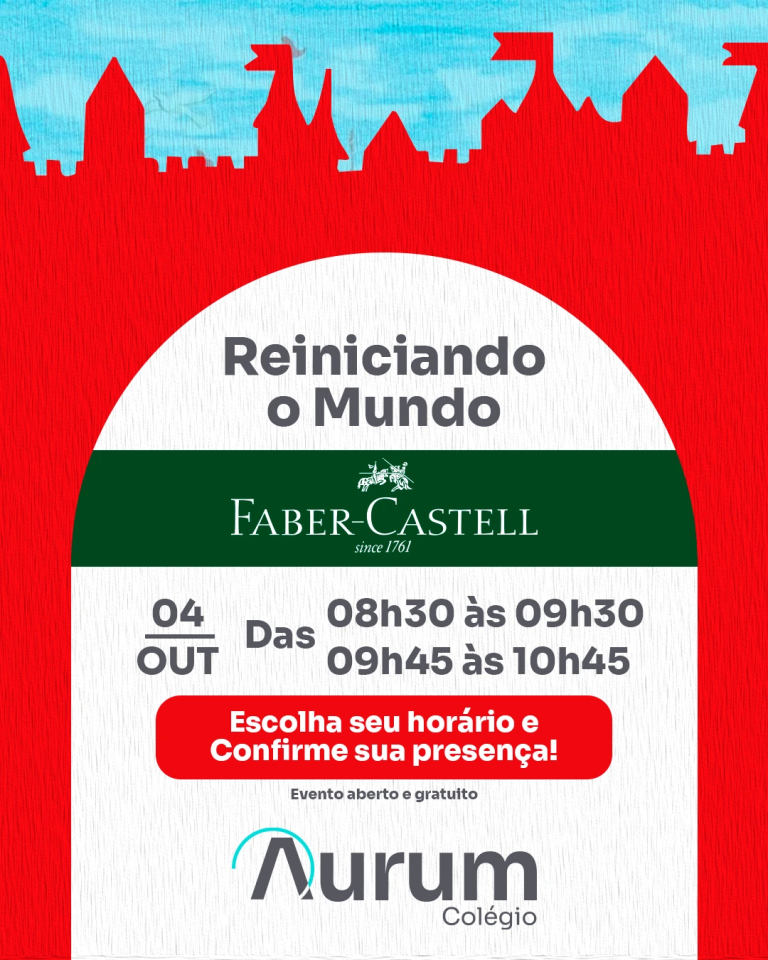Aprender inglês se tornou uma necessidade no mundo, especialmente para o mercado de trabalho atual. Por isso, a educação bilíngue tem sido cada vez mais procurada.
Começar os estudos da língua inglesa desde a primeira infância faz toda a diferença no desenvolvimento dos estudantes e facilita o processo de aquisição do segundo idioma.
No entanto, é preciso entender a diferença entre educação bilíngue e aulas de inglês para fazer a melhor escolha para o futuro dos seus filhos. É o que explicamos neste artigo, continue lendo!
Como funciona o ensino bilíngue na Educação Infantil
A Educação Infantil compreende a faixa etária dos 2 aos 5 anos e, por isso, é a fase em que, no sistema bilíngue, o contato com a língua inglesa é maior.
De acordo com a neurociência, neste período da vida, a criança produz uma quantidade maior de sinapses no cérebro, o que favorece a aquisição de um segundo idioma no mesmo nível de fluência da língua materna.
Contudo, é preciso entender que cada criança possui o seu ritmo, que precisa ser respeitado para que haja um desenvolvimento saudável e efetivo.
Na Educação Infantil no Aurum, o contato com a língua inglesa está presente em 80% do tempo escolar.
Com esse método, aprender o segundo idioma acontece de forma natural e otimizada.
Aula de inglês nas escolas tradicionais
A aula de inglês faz parte da grade curricular do sistema educacional brasileiro e está presente nas escolas tradicionais, mas isso não significa um sistema bilíngue.
Aulas em cursos de inglês fora da escola também não significam um ensino bilíngue, por dois motivos: primeiro porque o contato com a língua inglesa se mantém focado majoritariamente em aulas de linguagem e segundo, porque a carga horária é, em média, de 4 horas semanais.
Em colégios bilíngues, como é o caso do Aurum, além das aulas de inglês obrigatórias na grade curricular, também existem as aulas em inglês das mais diversas disciplinas.
Ou seja, os estudantes aprendem as matérias tradicionais, como matemática, ciências e história, em aulas ministradas totalmente em inglês. Assim, a imersão no idioma torna-se muito mais natural e eficaz.
A importância da língua inglesa
Falar inglês fluentemente contribui com diversas esferas da vida.
Sabemos que a língua inglesa está cada vez mais presente no cotidiano da sociedade brasileira, o que potencializa a importância de conhecer e dominar esse idioma.
É possível sentir essa necessidade da língua inglesa especialmente em algumas situações, como por exemplo:
Mercado de trabalho
Talvez esse seja um dos pontos mais comentados sobre a importância de aprender inglês, uma vez que é inegável que as empresas exigem mais desse conhecimento a cada dia.
Assim, a probabilidade de um candidato que saiba falar inglês conseguir uma vaga é muito mais alta do que para aquele candidato que não domina o idioma.
Viagens
A experiência das viagens internacionais com um conhecimento da língua inglesa é outra, já que a comunicação é facilitada e o aproveitamento do local e a socialização se tornam muito mais fáceis.
Também nas viagens nacionais o inglês é importante, pois possibilita a comunicação com outros turistas e viajantes, expandindo assim as possibilidades e a visão de mundo.
Acompanhar o mundo globalizado
Com tecnologias cada vez mais avançadas, o mundo está mais “próximo”. A globalização proporciona uma interação entre povos e culturas distintos com mais velocidade, que é muito mais benéfica e proveitosa com o domínio da língua inglesa, considerada um idioma universal.
No Aurum, investimos em uma identidade cultural tanto local quanto global, tendo a glocalização como um de nossos pilares. Temos o LOCAL na Língua Portuguesa, com a preservação e celebração da cultura brasileira, e o GLOBAL ao considerar uma mentalidade internacional e cosmopolita.
Por esses e outros motivos, é indiscutível que a língua inglesa é importante e necessária no cotidiano e que, quanto mais cedo se iniciar seu estudo , melhor e mais eficaz será o processo de aprendizado.
Benefícios do reconhecimento internacional
O Colégio Aurum conta com o reconhecimento internacional da Fieldwork Education, organização formada por especialistas em educação global que oferece currículo internacional para escolas.
Está presente em 92 países e já auditou mais de 1.800 escolas, sendo algumas delas as melhores do mundo. É reconhecida pelo Council of International Schools (CIS) e pela New England Association of Schools and Colleges (NEASC).
O reconhecimento internacional faz toda a diferença na validação e reconhecimento de um ensino bilíngue de excelência.
Assim, ficam claras as diferenças entre as aulas de inglês e educação bilíngue.
Entendendo essas distinções, podemos concluir que a educação bilíngue é um método mais funcional e eficiente para aprender um segundo idioma. No Colégio Aurum, seu filho tem acesso ao melhor ensino bilíngue em tempo integral de Jundiaí.
Você já conhece a metodologia do bilinguismo?
Confira nosso post “Como acontece o processo de alfabetização e letramento no contexto bilíngue do Colégio Aurum?” e entenda as mudanças na formação educacional dos pequenos!





